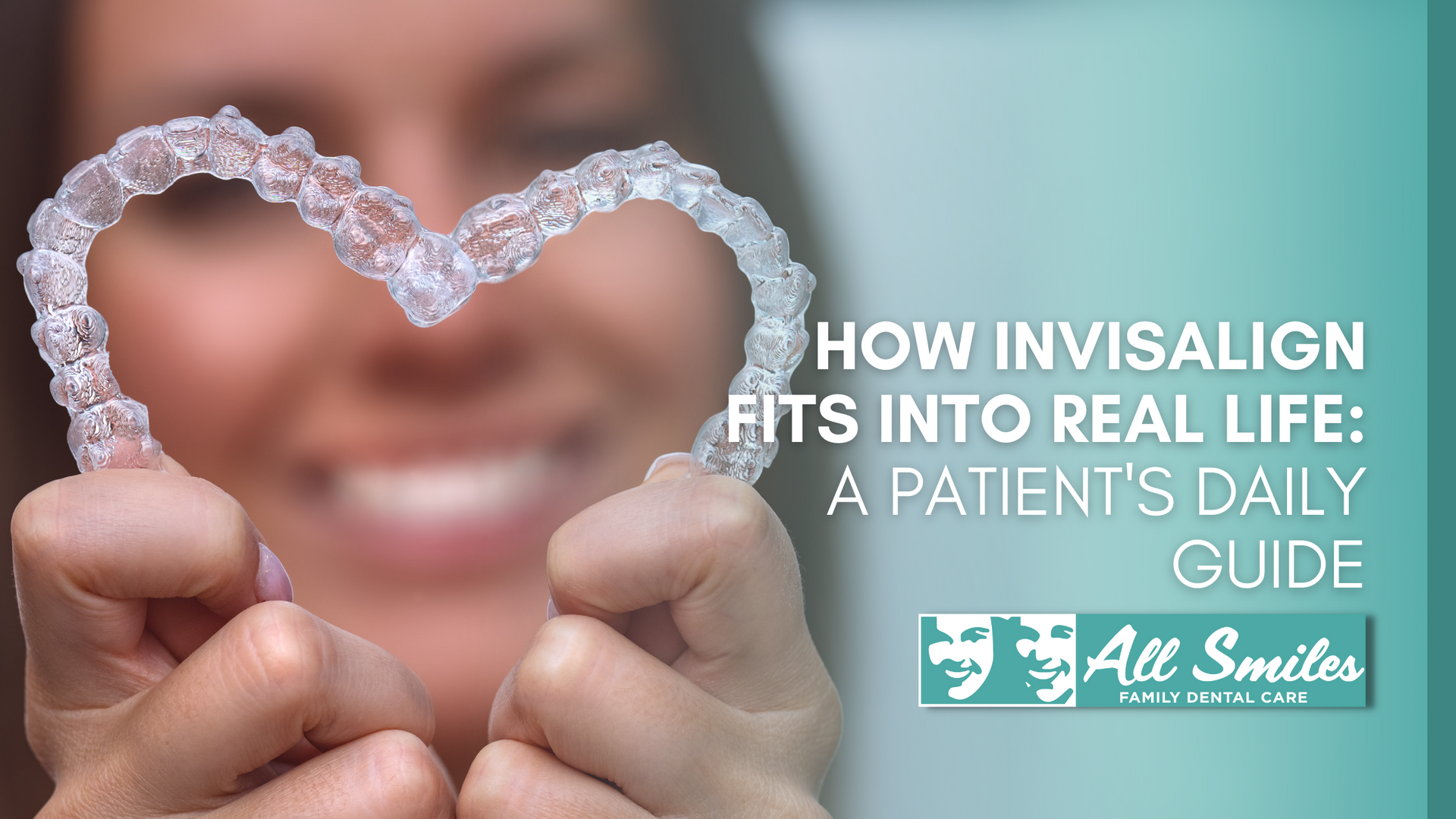Laser Therapy for Gum Disease
Laser Therapy for Gum Disease is available at All Smiles Dentistry in Lake Jackson, TX! We’re combining innovative technology with experienced providers means every patient receives the best care possible for any dental concerns. One of the ways modern dental practices provide more convenience and accuracy during dental procedures is through the integration of dental lasers . Dental lasers can be used in a number of different procedures, so finding a practice that is experienced in this technology can make a difference in the ease of treatment, level of pain, and recovery time for your dental issue.
What Is Gum Disease?
Gum disease is also called periodontal disease and is a common reason for seeking dental treatment for patients between ages 30 and 50. When the periodontal disease develops, the gums become chronically inflamed and infected, which can lead to pain and tooth loss. Many cases of gum disease can be prevented with excellent oral hygiene, though some are caused by a genetic predisposition, smoking, chronic illness, or medications. Once the periodontal disease progresses into an advanced stage, it often needs to be corrected with surgery.
What Is Laser Therapy?
Laser Therapy involves the use of a highly specialized laser to perform dental surgeries that previously required surgical tools. Since not all practices use lasers for procedures, it is important to find an experienced provider if you are interested in this option. Dental lasers have revolutionized the industry and provide a new, innovative solution for patients with dental concerns.
Does Laser Therapy Work For Gum Disease?
The first line of treatment for periodontal disease involves scaling and planning, during which the build-up of plaque and bacteria is removed from the deep within the gum tissue surrounding the teeth. This treatment is not sufficient for moderate or severe cases of gum disease, so surgical intervention is the next step. During surgery for gum disease, the gum tissue is opened and a flap is created to give the dentist access to the roots beneath the teeth. This way, the bacteria, and plaque-causing inflammation and infection can be removed from all areas of the teeth and gums. After cleaning, the gums are sutured back into place to heal.
Laser gum surgery has changed this procedure significantly. Instead of surgical cutting to create a flap, a dental laser is used to remove the infected gum tissue and allow the dentist access to the roots for scaling. The laser is also used to smooth out any rough spots in the tooth root to discourage future bacteria growth.
How Long Does It Take Gums to Heal After Laser Surgery?
Unlike standard periodontal surgery, which involves sutures and a longer healing time, laser gum surgery removes diseased tissue and allows healthy gum tissue to regenerate and heal. As the laser passes over the tissues, it also seals off the blood vessels and does not require sutures. Many patients can return to normal activity the next day. Although you can expect to experience some swelling and sensitivity after laser surgery, these symptoms usually resolve within a week or two. Closely following your dentist’s instructions, such as eating soft foods for a few days and applying ice packs for swelling, can help make the healing process go more smoothly.
What Are the Benefits of Laser Gum Therapy?
Laser gum treatment has several advantages over traditional surgery for periodontal disease. One of the major benefits is the pain level. Instead of surgically cutting open the gums, laser therapy removes diseased tissue with virtually no pain. The lack of sutures means a faster return to normal activity and a more comfortable healing process. Dental lasers are very precise instruments, so the diseased areas of the gums are targeted specifically, and the healthy areas are left intact. The smoothing of rough root areas means bacteria overgrowth and infection are less likely to reoccur.
Laser Gum Therapy at All Smiles Dentistry
Residents of Lake Jackson, TX, and the surrounding areas who are experiencing signs of periodontal disease should schedule a consultation with an experienced dentist for analysis and diagnosis. If gum disease is present, treatment is usually necessary to resolve the issues and restore your oral health. In the past, surgery for gum disease involved gum flap creation, de-calcification, and sutures, but the introduction of laser gum therapy has significantly reduced the pain, downtime, and healing process. Finding a dentist experienced in the use of laser dentistry can be tricky, but the team at All Smiles Dentistry uses this technology in many of several dental procedures. If you are in the Lake Jackson area and are interested in learning more about laser gum therapy, contact All Smiles Dentistry today to schedule an appointment or call (979) 297-1128 to get more information.
If you would like to have Laser Dentistry done on possible Gum Disease that you potentially might have, set up your appointment below with us today!
Featured Image: Aleksandr Rybalko/Shutterstock
The post Laser Therapy for Gum Disease first appeared on All Smiles Dentistry.



